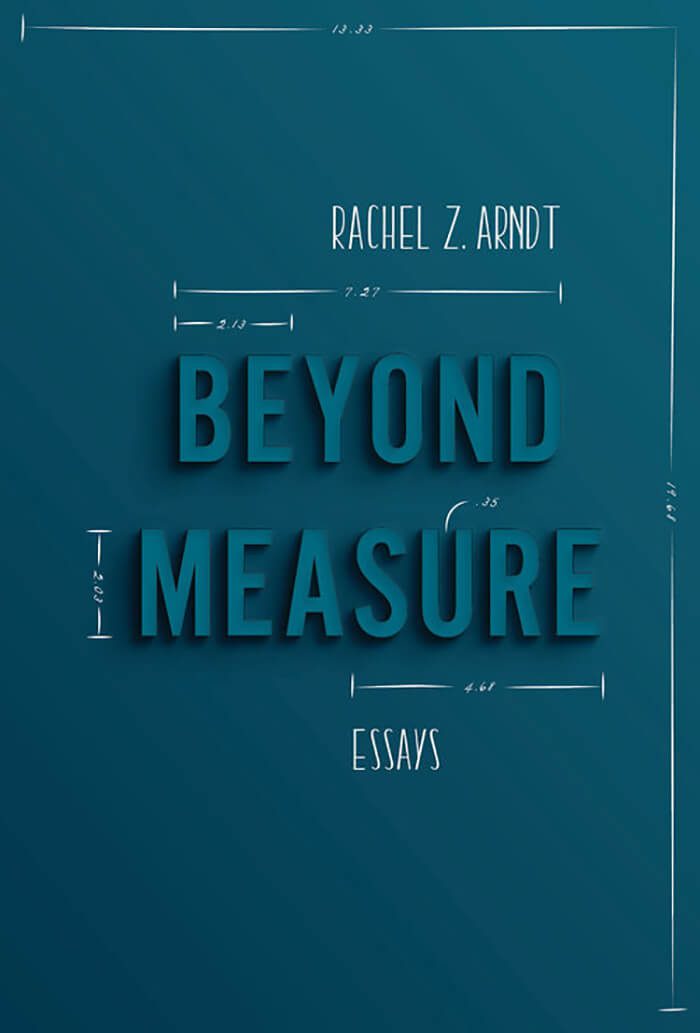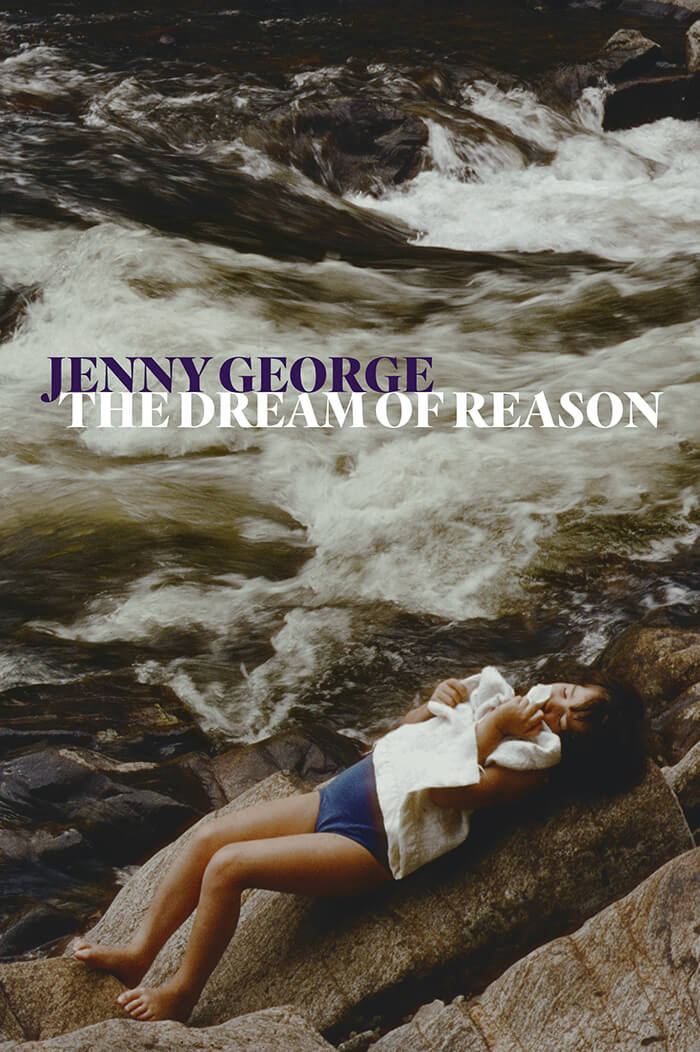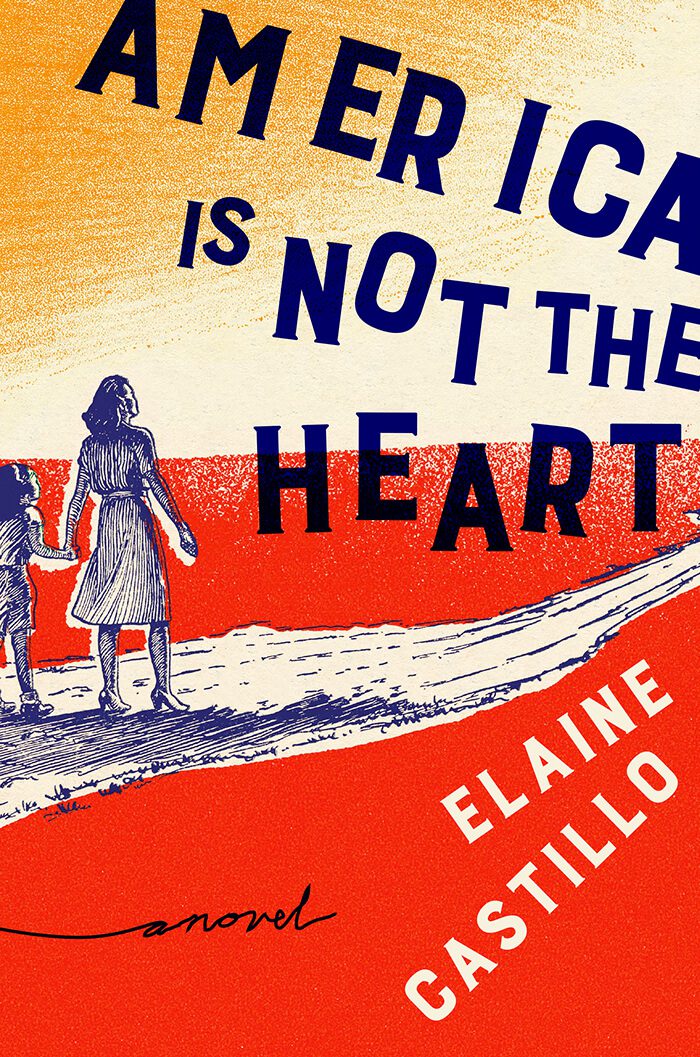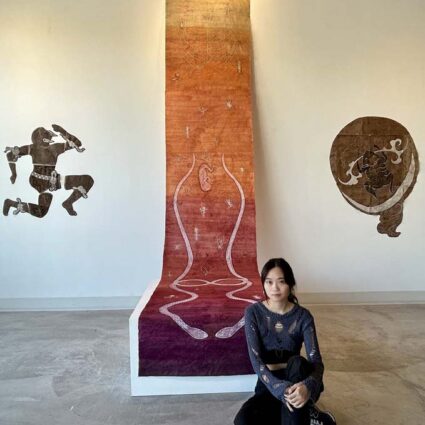Poetry
The Dream of Reason
by Jenny George
Copper Canyon Press (April 17, 2018)
When Jenny George read from her collection The Dream of Reason at Collected Works in early April, her voice was soft, slow, and steady. Like her poems, her reading rendered heartbreaking compressions of language and feeling into something delicate to behold. Her images and her subjects are unexpected, like the joy of dissecting frogs in her father’s laboratory as a child. Her poems frequently turn to animals and to the natural world to explore violence, grief, connection, and loss. A bat crawls on its elbows, a mother folds up the ocean and shuts it in a cupboard, the grass is “troubled” by the wind. In the second of the three sections of poems that make up The Dream of Reason, George moves away from human reminiscence and mourning to focus on the lives of pigs who are born to breed, her tone swinging from the comic to the barbaric to the merciful. Yet even when her poems are devastating, confronting literal slaughter, George finds gentleness and reprieve in empathy, in relating to the creature: “An enclosed pig gives us cagey looks. / Something flightless is cramped in its heart.” By constantly bringing her own humanity to bear on plants, animals, even objects, eventually the human body merges with and emerges from the natural environment. “What will be the first to emerge? / The brain, pushing its murderous bulb through the mud? The heart? No—the heart is the last to rise.”
Quote:
Think of it—to navigate by adjustment, by the beauty
of adjustment. All those shifts and echoes.
The bats veer and dive. Their eyes are tiny golden fruits.
They capture the moths in their teeth.
Fiction
America Is Not the Heart
by Elaine Castillo
Viking Books (April 3, 2018)
Elaine Castillo’s debut novel America Is Not the Heart begins with a prologue in the second person: “So you’re a girl and you’re poor, the worst combination, but at least you’re light-skinned—that’ll save you.” This jarring placement of the reader in a body and a narrative not fully familiar to her, but described as though it is well-known, operates throughout the entire book. The names of places and characters are hurled at you from the beginning, and if you can’t make sense of them, perhaps your disorientation itself is the point. Castillo includes dialogue in Tagalog, Pangasinan, and Ilocano, the languages spoken by her own parents, often without translation, demanding that you figure out what a person said based on context, or, in many cases, live with not knowing or fully comprehending. Her main character, Hero, finds herself in the Bay Area after ten years as a medic for the New People’s Army, a rebel Communist cadre in the Philippines, after she was held hostage and had her thumbs broken and never adequately repaired. Her injury is like so many things she carries with her into her new life: a stiffness, an immobility. Yet our Hero falls in love, transforming a novel of immigration and trauma into a hilarious, delightful queer romance. With a mix of faith healing (“White people always thought they were full of toxins, so you could make a lot of money just by claiming to be able to remove them”), imported comic books, and so much Filipino food, Castillo strikes a balance between humor and revelation: as Hero has it, America Is Not the Heart is “funny, in that way of things being funny right before they dug deep, wrenched, and tore.”
Quote:
You already know that the first thing that makes you foreign to a place is to be born poor in it; you don’t need to emigrate to America to feel what you already felt when you were ten…You’ve been foreign all your life. When you finally leave, all you’re hoping for is a more bearable kind of foreignness.

Nonfiction
Beyond Measure: Essays
by Rachel Z. Arndt
Sarabande (April 10, 2018)
If you google Rachel Arndt, you’ll find publications at places like Modern Healthcare (where she’s a staff writer), Good Housekeeping, and Esquire (an essay on formatting your resume in Microsoft Word). Nonfiction writers often make their livings getting their voices into the world in the most unlikely places, putting in time at so-called women’s magazines (Ann Patchett, Joan Didion), writing copy and doing editorial work for specialist journals (Amy Tan, Jo Ann Beard), and in the process finding material and time to write their own work. In her first essay collection Beyond Measure, Arndt’s material is frequently her own body. A narcoleptic, Arndt endures sleep studies, attends narcolepsy conferences, and fuels her constantly exhausted self with a mix of Adderall and caffeine. Incongruously, she also writes essays on her daily workouts at the gym, scrutinizing the wordless interactions that happen in a highly gendered and often intimidating space, and at judo tournaments, which she frequently wins. Beyond Measure is a compulsively readable collection that has measurement at its heart. Arndt’s attempts to control and hone her physical body serve as metaphor and manifestation of the neoliberal self under capitalism: the body as physical experience becomes the body—and person—as marketable product. What is most unnerving about the essays’ tightening focus on selfhood is their slow but inevitable realization that every time we go to the gym or take a pill or make a purchase at Bed, Bath, and Beyond, we are also making ourselves into a product—we are doing it to ourselves.
Quote:
The gym was the factory and in it, machines, like the machines of regular factories, replicated human movements. But in these new factories, the workers were the product and the consumer at once.





